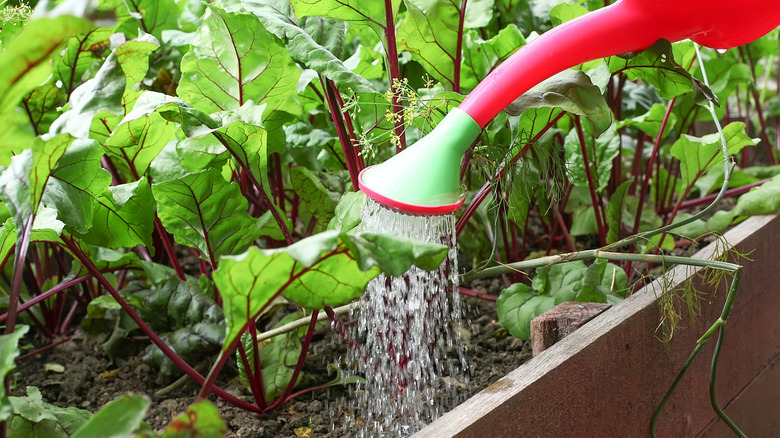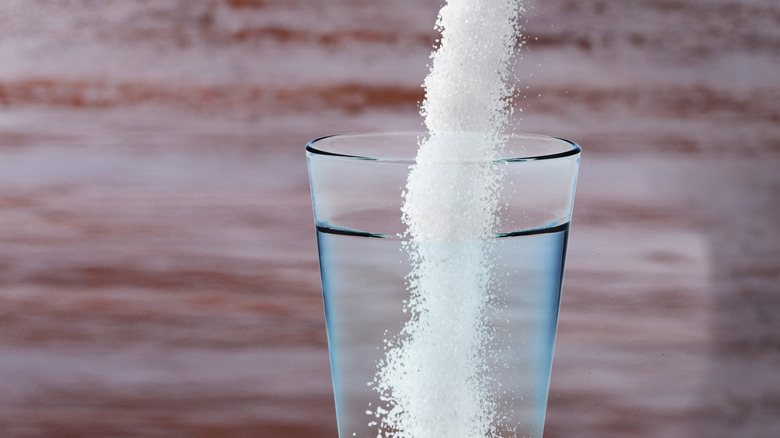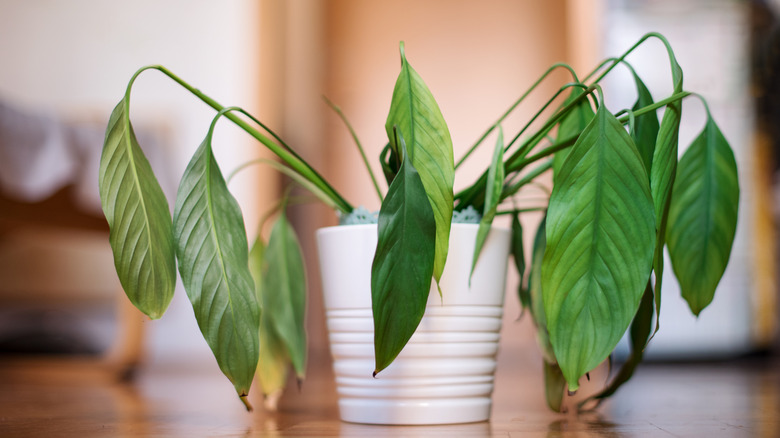The Truth About Using Sugar Water For Plants
We may receive a commission on purchases made from links.
The debate over whether it's beneficial to feed plants with sugar rages on in the halls of academia, the greenhouses of landscape retailers, and the bright dodgeball courts of science fairs everywhere. As with so many debates, there doesn't appear to be any consensus in sight, but there are things to be learned about plant nutrition, and maybe about cognitive bias and how much science is actually in science fairs.
House Digest spoke exclusively with landscape designer Melanie Rekola to get her take on the question. "Sugar water doesn't directly help plants grow," Rekola said, "but could slightly benefit the soil microbes around a plant to boost the process of breaking down soil nutrients, thus making them readily available to the plant."
There are a number of minor hypothetical benefits of sugar water for plants: a boost for soil microbes, as Rekola mentions; support for beneficial insects; and assisting signal pathways for immune systems. Unfortunately, all of these benefits sound better than they actually are in practice. And the downsides can be severe. The same downsides we see for using sugar water to keep a Christmas cactus healthy or using sugar when watering your aloe vera, for example, apply to most other plants as well.
Is sugar water a net benefit for plants?
The science — or at least the scientists — seem to say that sugar water can represent a short-term benefit to plants in some circumstances, and might be worth trying in a last-ditch effort to save a plant. But given the downsides, it's also possible to do more harm than good. Consider the problem of nematodes, for example. Sugar is a clever way to keep these garden worms away from your plants' roots, but misapplying sugar can have exactly the same effects on a plant as root damage from nematodes.
"I don't feel the growth benefits are great enough to bother with this method," Melanie Rekola said when House Digest spoke with her exclusively. "... But if someone wants to [try] anyway, they must be careful to not add too much sugar. Keep the sugar-to-water ratio light, or else they could suffocate the plant by preventing water uptake from its roots."
Most experts, including scientists, come down on Rekola's side of this issue. But that doesn't make it settled science, as not a lot of science has been done to settle the issue. Rather, some studies have attempted to determine the effects of sugar application in very narrow circumstances. Multiple studies, for example, have found that sugar application has no statistical effect on soybean and corn yields. At the same time, a study in Environmental Entomology indicated that sugar can increase the number and effectiveness of beneficial insects, like lacewings and lady beetles, and a study in the Journal of Experimental Botany found it can improve plant immunity against pathogens.
Volcanos, bleach, and the limits of fair science
When House Digest spoke exclusively with Melanie Rekola on the subject of feeding plants sugar water, she tried to explain why the myth might be so persistent. "I think this myth exists because sugar water does help prolong the vase life of cut flowers," Rekola said. "And though this method works, I find the best way to keep cut flowers looking fresh the longest is a simple cap full of bleach added to the vase water."
Of course, it could also be that evidence is confusing and easy to misapply. In isolation, any scientific experiment might be used to make an overreaching claim. And without the proper caveats, we might take that claim as truth, or at least as the position of science in general.
Robert Pavlis, author of seven books on plant science, including "Soil Science for Gardeners," summarizes all the science in his Garden Myths blog. As befits a scientist, Pavlis doesn't exactly conclude anything very broad, but he makes the point that while a little sugar might benefit plants indirectly, too much will kill them. The home gardener has little hope of identifying an effective (or safe) amount, which is Rekola's point. If safe is better than sorry, skip the sugar water.


